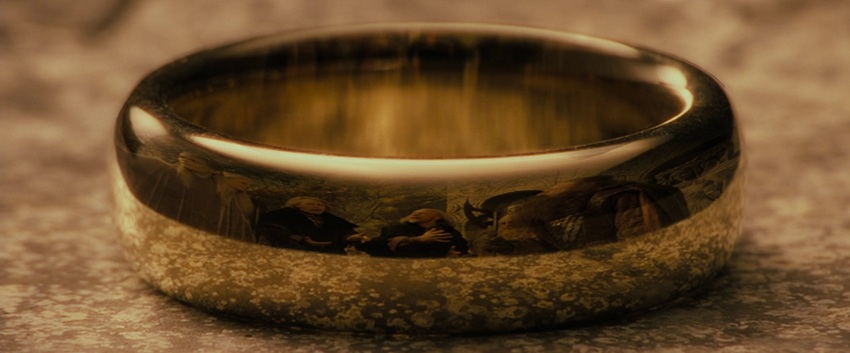
Christians are fond of rehearsing the story, told in Humphrey Carpenter’s The Inklings, of J.R.R. Tolkien nudging C.S. Lewis past the conversion tipping point with a well-timed comment about mythopoeia. When Lewis objected that other cultures and religions shared many mythic elements with Christianity, Tolkien allegedly replied, “Sometimes the myth is true.”
I have always preferred a different anecdote from Carpenter’s book, an excerpt from Warren Lewis’s journal after reading his friend’s magnum opus in its entirely for the first time. He had heard bits and pieces read out in the pub over the years as the group of friends met, and he knew it was good. But the scope of the story, told in its entirety, stunned him. To risk another parallel to the Bible, Lord of the Rings has now been so parceled and processed that it is hard to defamiliarize ourselves to it, to remember how its overwhelming combination of scope and detail swept us up in its adventures when we encountered it for the first time.
Distinguishing true spiritual significance from fanboy bluster is never easy, Tolkien was allergic to allegorical readings, sniffing at attempts to read the One Ring as Middle Earth’s atomic bomb, sought by all though none could withstand its perverting power. Some Christians cling to Gandalf’s passive-voice religious assurances that the ring was “meant” to come to Frodo and the other invisible forces were influencing the boots on the ground.
One need not be Christian to admire the sublime courage shown by the fellowship in the face of an existential crisis. “One does not simply walk into Mordor,” Boromir asserts in his often memed response to the Council of Elrond. Yet one does. Because one must. At least twice in the first film of the trilogy, Frodo expresses the desire that the ring had not come to him, that the global events he is swept up in had never happened. Gandalf reminds him that the only choices that are ours to make are the ones presented to us by a life indifferent to our desire for serenity.
The Lord of the Rings is not a perfect set of films, and for many years I resisted and resented the trilogy for its flaws far more than I appreciated it for its virtues. Peter Jackson misunderstands certain passages and characters in it, and for that I had a hard time forgiving him. But could I not say the same thing about the makers of Jesus Christ Superstar or The Gospel According to St. Matthew? Must we always make the perfect the enemy of the good?
At its best, The Lord of the Rings delivers moments of nearly unrivalled pathos. Just as the voice of God isn’t always found in the earthquake but sometimes in the whisper, the power of these films comes more often in their quieter moments rather than their spectacular battles. The heroic effort of Bilbo to let go of the ring, even if that means just opening his hand and letting it fall. The desperate loyalty of Sam as he follows his friend into the very fires of hell. The ability of Aragorn to compartmentalize his own pain at what happened in Moria long enough to get the fellowship moving and keep his friends’ sacrifice from being in vain.
And, of course, the painful combination of disgust and pity at Gollum. Has there ever been a better portrait of the power of greed and lust to destroy us by giving us what we think we want? Film critic Steven D. Greydanus once blithely dismissed social media quizzes that would proport to tell you which character in a beloved film you were most like. True fans, he said, didn’t need an AI algorithm to confirm what their hearts already knew. My heart fears that I would be Gollum but for the mercy of others. To whom much is given, much is expected….so go now and do likewise. — Kenneth R. Morefield (2025)
Arts & Faith Lists: